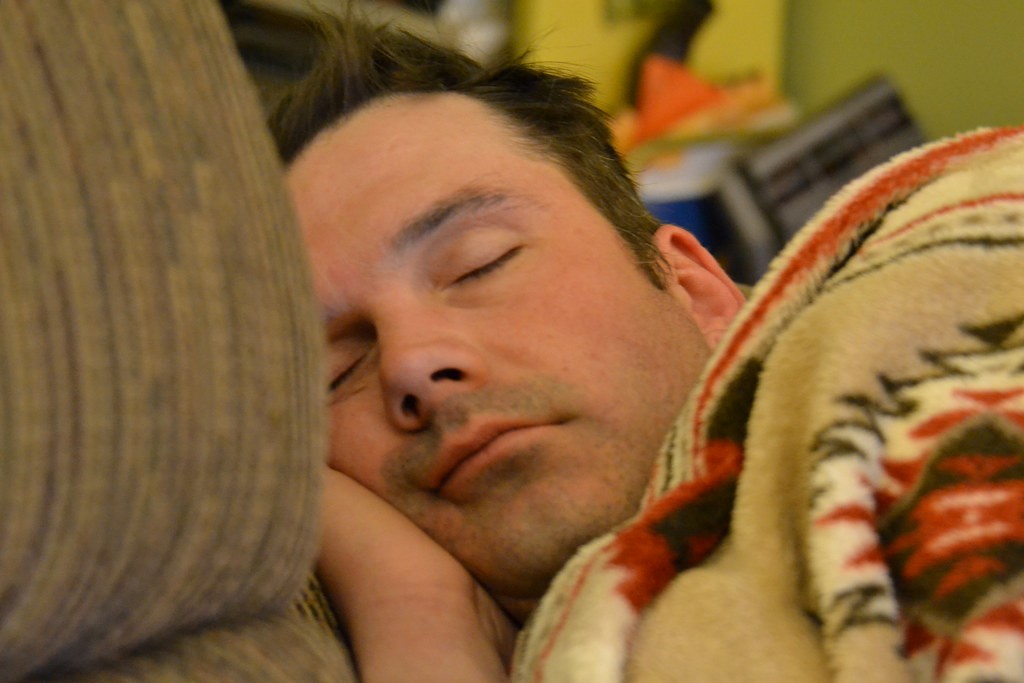<p>If people of past centuries could look at us, they would decide that we live in a very strange and frightening world. Modern man is surrounded everywhere by electronics, which over the past few decades has evolved to incredible heights. Now, you can easily buy a plane ticket to Miami, book a car from <a href="https://14cars.com/car-rental/australia-adelaide-airport-adl-avis">Avis at Adelaide Airport</a>, or find the desired hotel in Milan from the comfort of your home.</p>
<p>But, despite all the technological progress, in the biological plan we still remain primates. Many of the hidden mechanisms in our bodies are adapted to survive in the African savannah much better than to live in a sparkling metropolis.</p>
<p>Scientists have long been saying that the mismatch between our rudimentary biology and modern way of life can negatively affect people&#8217;s mental health. A healthy sleep is most affected.</p>
<p>The fact is that for most people, interaction with electronic devices an hour before bedtime has become the everyday norm. Against this background, the quality of night sleep decreased significantly. This may be caused by the following reasons&#8230;</p>
<ol>
<li>
<h2><strong>Delayed </strong><a href="https://en.wikipedia.org/wiki/Circadian_rhythm"><strong>circadian rhythm</strong></a></h2>
</li>
</ol>
<p>Circadian rhythm is cyclical fluctuations in the intensity of biological processes in your body. In short – this is your biological clock. According to scientists, the effect of artificial light sources can disrupt this rhythm.</p>
<p>Thanks to sensitive photoreceptors in the eyes, the brain is able to automatically track the onset of day and night. This process is independent of your consciousness. You may know that it’s night, but if a bright LED shines in your eyes, your brain will think differently.</p>
<p>Modern man, constantly surrounded by artificial light sources, is most often confronted with insomnia precisely because of circadian rhythm failures.</p>
<p><img class="alignnone size-medium" src="https://upload.wikimedia.org/wikipedia/commons/5/55/Circadian_rhythm_labeled.jpg" width="400" height="267" /></p>
<ol start="2">
<li>
<h2><strong>Decreased </strong><a href="https://en.wikipedia.org/wiki/Melatonin"><strong>melatonin</strong></a><strong> levels</strong></h2>
</li>
</ol>
<p>Melatonin is the main hormone that regulates circadian rhythm. In essence, this is your biological switch. In the evening, the level of melatonin rises, causing a state of drowsiness. By morning, the hormone stops acting, a person wakes up and feels cheerful. At least this should work.</p>
<p>The problem is that the production of melatonin is automatically controlled by the level of illumination. The blue light emitted from the screens of monitors, televisions, smartphones and other devices reduces the production of melatonin.</p>
<p>Also, according to scientists, a decrease in the level of melatonin is affected by electromagnetic radiation. As a result, sleep becomes less strong and effective.</p>
<ol start="3">
<li>
<h2><strong>Inappropriate brain activity</strong></h2>
</li>
</ol>
<p>Brain stimulation is one of the main causes of poor sleep. The human brain simply remains too tense and awaits a signal. Even a simple e-mail check before bedtime can strain the user&#8217;s brain at a time when it should relax.</p>
<p>For the same reason, scientists from the <a href="https://en.wikipedia.org/wiki/National_Sleep_Foundation">National Sleep Foundation</a> don’t recommend sleeping and watching the TV at the same time. According to them, even when sleeping, the brain is still trying to interpret incoming sound signals, and the quality of rest is greatly reduced.</p>
<ol start="4">
<li>
<h2><strong>Slow falling asleep</strong></h2>
</li>
</ol>
<p>If you still want to read before going to bed, you should stop at a paper edition. Scientists came to this conclusion based on the results of an interesting study.</p>
<p>The subjects were divided into two groups. The first group before bed read texts from tablets, the second &#8211; traditional paper books. It turned out that, despite the equal duration of reading and the same texts, people who read from electronic devices fell asleep later.</p>
<p>More recent studies have found that the same delay in falling asleep is present in subjects who played video games before going to bed. Scientists attribute this to the light of displays and the decrease in melatonin levels.</p>
<p><img class="alignnone size-medium" src="https://upload.wikimedia.org/wikipedia/commons/e/ee/%D0%A4%D0%B0%D0%B7%D0%B0_-_%D1%81%D0%BE%D1%81%D1%82%D0%BE%D1%8F%D0%BD%D0%B8%D0%B5_%D0%BC%D0%B5%D0%B6%D0%B4%D1%83_%D0%B1%D0%BE%D0%B4%D1%80%D1%81%D1%82%D0%B2%D0%BE%D0%B2%D0%B0%D0%BD%D0%B8%D0%B5%D0%BC_%D0%B8_%D0%91%D0%94%D0%93-%D1%81%D0%BD%D0%BE%D0%BC.jpg" width="1024" height="576" /></p>
<ol start="5">
<li>
<h2><strong>Reducing </strong><a href="https://en.wikipedia.org/wiki/Rapid_eye_movement_sleep"><strong>REM sleep</strong></a></h2>
</li>
</ol>
<p>The REM sleep phase is a kind of defragmentation. It’s during this phase that your brain organizes information, as a result of which you see dreams. The phase is extremely important for the assimilation and storage of information, as well as for the general relaxation of the body.</p>
<p>In the course of research, scientists found that using gadgets at bedtime slightly reduces the REM phase. So, all these processes run a little worse.</p>
<ol start="6">
<li>
<h2><strong>Interruption of sleep</strong></h2>
</li>
</ol>
<p>Electronics causes the greatest harm to sleep if it interrupts it. Notifications on a smartphone can be convenient, but not in the middle of the night.</p>
<p>National Sleep Foundation recommends turning off your smartphone at night, or at least putting them into silent mode.</p>
<ol start="7">
<li>
<h2><strong>Morning fatigue</strong></h2>
</li>
</ol>
<p>The logical result of all of the above factors is a feeling of tiredness and lack of sleep in the morning. Interestingly, it depends not so much on the amount of sleep, but on the amount of artificial blue light received the day before.</p>
<p>People who fell asleep with a smartphone in their hands, but slept longer, felt worse than those who slept less, but were not exposed to the blue light of the display before going to bed.</p>
<h2><strong>What to do?</strong></h2>
<p>Firstly, daylight received during the day can save from circadian rhythm failures. According to scientists, a person spending from 15 to 30 minutes in natural light every day becomes less susceptible to the effects of artificial light in the dark.</p>
<p>If we talk about gadgets and displays, it’s recommended to use special applications or filters that change shades to more yellow.</p>
<p>Well, the last tip is the most radical. Scientists recommend half an hour before bedtime to turn off displays and get off the Internet. Perhaps, this task is completely impossible.</p>

Technological Excess: 5 Ways Electronics Affect Your Sleep
